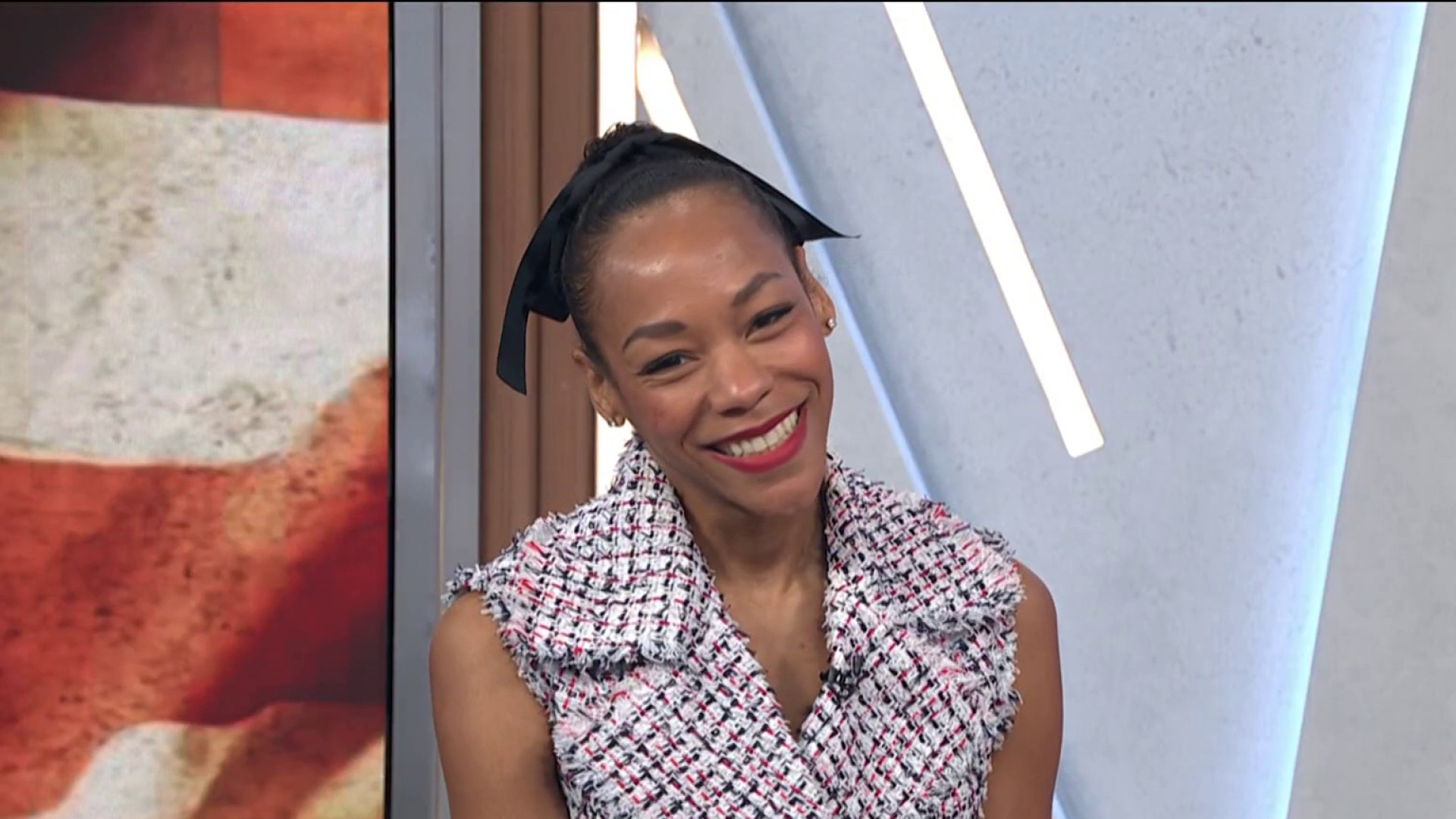I approached “Oslo,” the new political thriller at Lincoln Center Theater, with a single image in mind: Israeli Prime Minister Yitzhak Rabin and Palestinian leader Yasser Arafat shaking hands in the White House Rose Garden, with then-President Bill Clinton behind them, his arms spread wide in embrace.
What a moment. The signing of the Oslo peace accords may well have been the photo op of the 1990s.
And yet ... a quarter-century later, much of the world recalls the pivotal episode in the Arab-Israeli peace process not as a high watermark, but as an ineffective diplomatic exercise that left more bloodshed in its aftermath. Time suggests that the accord had no teeth.
Is there still drama, then, to be mined from a story about the agreement’s genesis? That’s what I wondered as the 3-hour drama, directed by Bartlett Sher (“Fiddler,” etc.), built to its sad crescendo. The answer, assuredly, is yes.
Playwright J.T. Rogers grasps the cynicism that crept back over the Middle East in the wake of multinational efforts to tamp down the decades-long conflict, and has crafted a play arguing that the storied agreement set events on a better course, even if it didn’t generate the desired outcome.
“Oslo” is told from the perspective of a young Norwegian couple (Jefferson Mays and Jennifer Ehle), who arranged back-channel meetings between Israeli and Palestinian players at the snowy Borregaard Estate, outside the Norwegian capital, with neither the permission of superiors, nor the inclusion of American interlopers.
Mays ("A Gentleman’s Guide to Love and Murder") is Terje Rød-Larsen, director of a think tank, who theorizes that a negotiation will only bear fruit in an environment where enemies can relate on a personal level, learning the names of each other’s children and so forth.
Broadway
He has a fine complement in Ehle (“The Coast of Utopia”) as his wife, Mona Juul, an effective diplomat who quickly plugs press leaks to preserve the sanctity of the undertakings and is the more grounded force in their union. (The two real-life diplomats, not incidentally, aided Rogers with his script.)
With the idea that it’s better to seek forgiveness than permission, our story begins at a dinner party, during which Terje and Mona tell the incoming Norwegian foreign minister of their plan to bring together Israeli and Palestinian leaders … but only after they’ve set it in motion.
From there, we flash back a year to meetings at Borregaard, with escalating tensions and ever more high-level diplomats on site. Also, there are plenty of waffles: Terje and Mona clearly believe the way to the hearts of angry men is through their stomachs.
Back and forth, the Israelis and Palestinians attempt to hammer out a Declaration of Principles, debating issues familiar to anyone cursorily versed in Middle Eastern affairs: Who will have sovereignty over Jerusalem? Will the Israelis leave Gaza? Can the Palestinians recognize Israel as a “legitimate” state?
Taking seats at Booregaard are Ahmed Qurie (the marvelous Anthony Azizi), as the mildly flirtatious finance minister for the PLO. His delegation partner is Hassan Asfour (Dariush Kashani), a brutish fella who goes off on deadpan non sequiturs filled with vaguely Communist-sounding proverbs.
Across the table are Israeli politicians such as Uri Savir (the excellent Michael Aronov, of “Golden Boy”), a one-time New York consulate official whose youthful pig-headedness seems likely to derail the work going on.

At times, “Oslo” is more playful than its subject matter might suggest: tension in one scene is broken when a drunken Uri dons a makeshift peaked keffiyeh (Arafat’s signature headdress) and segues into a goofy impersonation of the late Palestinian leader.
The writing and staging are literal-minded, so the sound of a jet engine tells us the action has moved from Oslo to London or Stockholm. Mona, in her capacity as narrator-in-chief, describes numerous atrocities even as newsreel footage of the horrors screens on the back wall of the Mitzi E. Newhouse.
I never felt as if “Oslo” had a pro-Israeli or pro-Palestinian political stance; that fact alone lends the story heft.
Finally, Mays’ Terje makes the point that, results notwithstanding, at least it was possible for Israelis and Palestinians to come to the same table. With “Oslo,” playwright Rogers is clearly exhibiting a wish that the next generation of players would soon pick up where their predecessors left off.
“Oslo,” on sale through Aug. 28, 2016 at Lincoln Center Theater, 150 W. 65th St. Tickets: $77-$87. Call 212-239-6200.
Follow Robert Kahn on Twitter@RobertKahn



